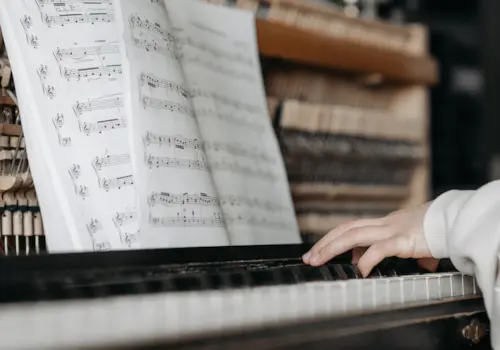30 August 2016
|
Sitting at the piano for long periods can create all kinds of tension in your body. Some quick suggestions...
Sitting at the piano for long periods can create all kinds of tension in your body. Loosen up with yoga or the Alexander Technique. Guildhall School of Music piano professor Nelly Ben-Or runs twice-yearly courses in piano playing that include the application of the Alexander Technique. Says Ben-Or, ‘The Alexander Technique teaches a clear conscious awareness for the improvement of one’s total mental/physical coordination. It “fine-tunes” a player for a way of learning and performing music that saves time and energy often spent in wasteful, mechanical, mindless practising that can lead to problems of strain – even injuries.’ Some interesting websites here:
The Society of Teachers of Alexander Technique
The Complete Guide to Alexander Technique
Even the NHS has a page about the benefits of the Alexander Technique!
‘The aim of Piano-Yoga is not only to improve technique and the learning process, but to create a nurturing environment and establish a sense of well-being that enhances development as a pianist,’ says Piano-Yoga’s director, GéNIA. ‘Doing Piano-Yoga can help pianists of all backgrounds and levels to transform their playing in a holistic way. Through a combination of technical finger exercises, pure yoga and relaxation classes and performance psychology, Piano-Yoga students learn how to build strength and suppleness in their fingers and hands, safely increase hand span, improve concentration, establish good posture at the piano, master different qualities of sound, develop rhythm and articulation, improve sight-reading, conquer performance nerves, release tension during performance, organise piano practice and unlock individual interpretation.'
All about Piano-Yoga here.
Finally, it may seem premature to worry about injury when you’re starting out, but it’s worth a moment to think about what you’re doing with your body. The British Association of Performing Arts Medicine offers tips for performing without pain, plus warm-up exercises.
British Association of Performing Arts Medicine







